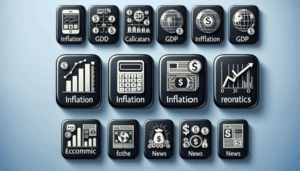
O purchasing power is the ability of an individual or society to acquire goods, services and resources.
This concept is often related to the amount of money a person has, but it can actually be more complex and depend on factors such as prices and the availability of goods.
Purchasing power is directly proportional to a country's economy. In a strong economy, wages are generally higher, jobs are more plentiful and production is high.
In this scenario, consumers generally have high purchasing power.
However reduced purchasing power can lead to a vicious cycle of economic recession.
With less capacity for consumption, company sales fall, which can lead to layoffs and, consequently, a further reduction in purchasing power.
On the other hand increase in purchasing power can lead to a virtuous cycle of economic expansion.
With greater consumer capacity, companies' sales increase, which can lead to more employees being hired and, consequently, a further increase in purchasing power.
In short, understanding the concept of purchasing power and how it impacts the economy can be vital to making well-informed decisions regarding personal finances and investments.
To deepen your knowledge even further, you can download the XYZ finance app or visit the ABC economics website.
Nowadays, with the economy changing frequently, it's very important to understand how we can increase our profits. purchasing power.
Here are some strategies that can help you extend your budget and have more control over your money.
The first step to increasing your purchasing power is to take strict control of your money. This means taking a close look at your spending habits and spending consciously.
Another way to increase your purchasing power is to find ways to increase your income.
This could involve looking for a better-paid job, starting your own business or looking for lucrative investment opportunities.
Finally, learning to negotiate can have a dramatic impact on your purchasing power. This includes everything from salaries to everyday purchases.
The term inflation is familiar to many of us, but do you really know what it means and how it affects your purchasing power?
Well, inflation is basically the general increase in the prices of goods and services in an economy over time.
Several things can trigger inflation, such as strong economic growth, increased demand for goods and services, rising production costs, among other causes.
As a general rule, when inflation increases, your purchasing power decreases.
This is because, as prices rise, your currency loses value, which means you'll need more money to buy the same goods and services as before.
Economists use price indices to measure inflation. In Brazil, the most commonly used is the IPCA (National Broad Consumer Price Index).
This index is used by the government to set inflation targets and also to adjust the value of the minimum wage.
Understanding the concept of inflation and how it affects your purchasing power can help you make better financial choices.
For more information on inflation, you can check out the websites of the Central Bank of Brazil and IBGE.
Applications mentioned in the content: